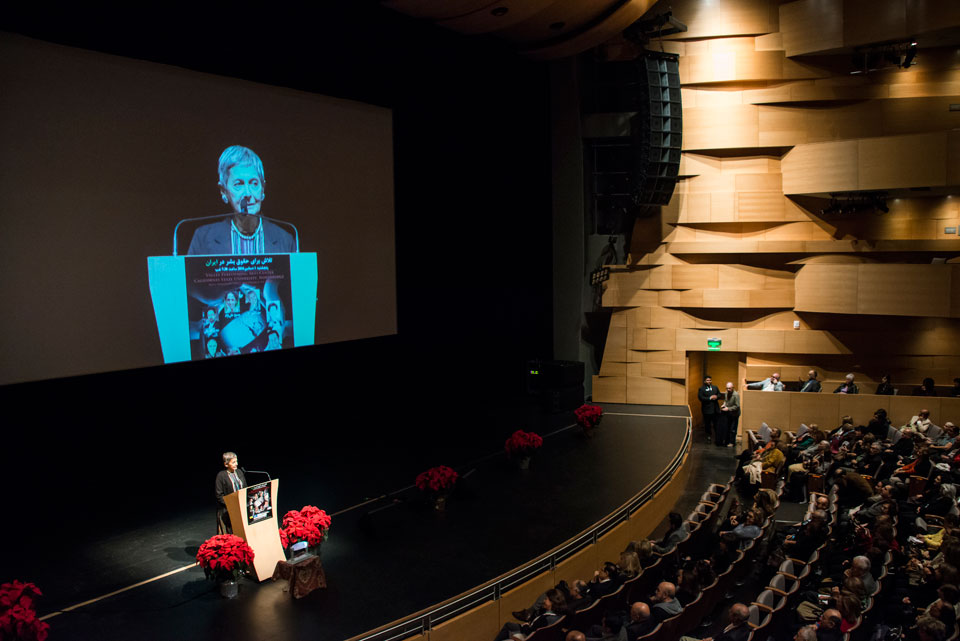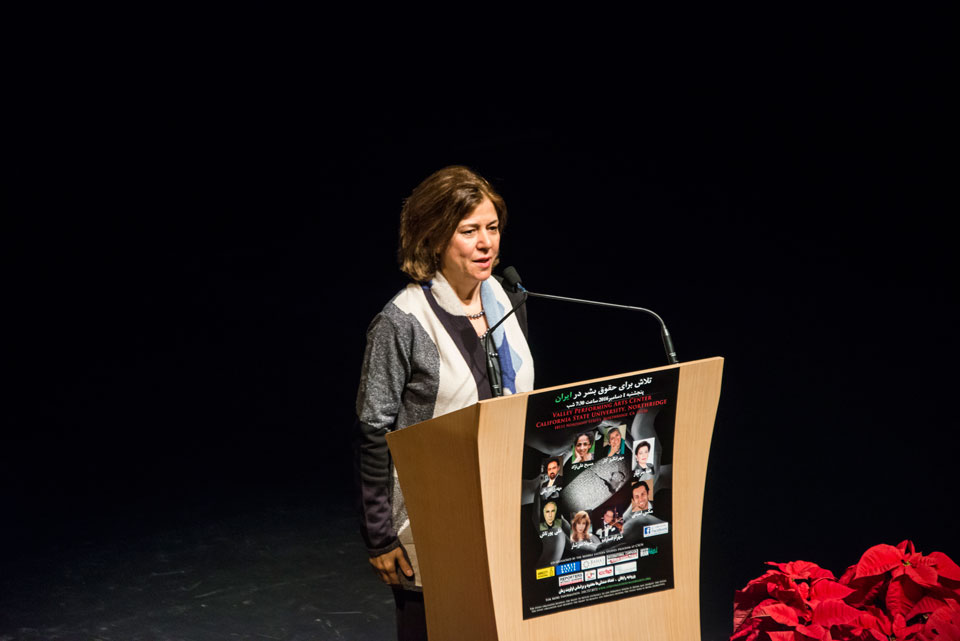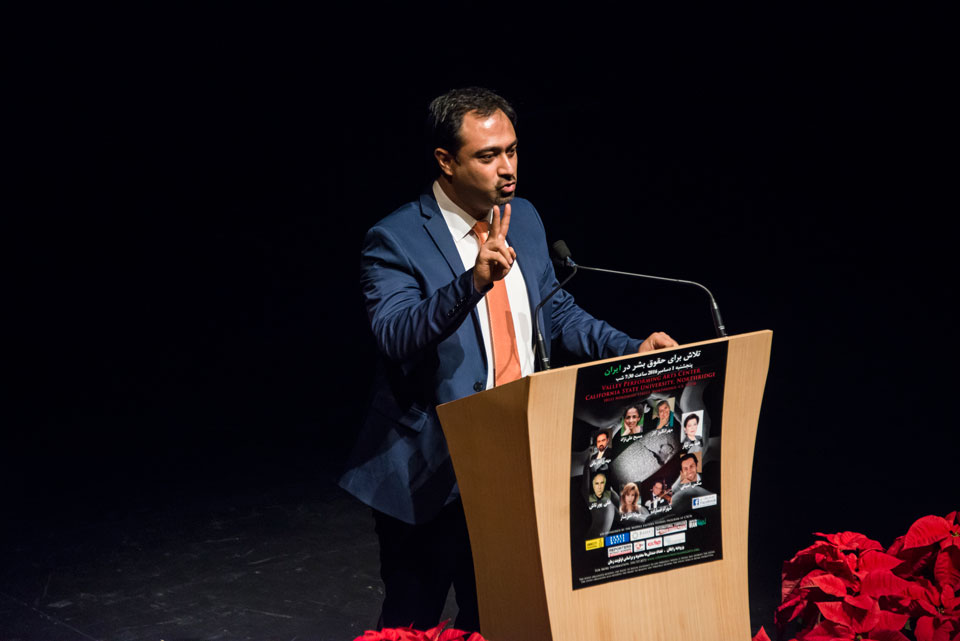Special Event Highlights Ongoing Quest for Human Rights in Iran
Iranian activists, writers, comedians, actors and musicians addressed the need for social reform in their homeland, during the Striving for Human Rights in Iran lecture at the Valley Performing Arts Center at California State University, Northridge.
The free event was co-sponsored by CSUN’s Middle Eastern and Islamic Studies Program and focused on human rights violations committed by the Iranian government against its citizens, while highlighting the importance of activism and the international push for positive change in Iran. The speakers communicated almost solely in Farsi, with simultaneous English translation provided for non-Farsi speakers via headphones.
The evening marked the seventh year for this seminar, according to planning committee member Elhum Vahdat. The events are held exclusively in the Los Angeles area, but feature speakers from around the globe.
Themes of togetherness and an emphasis on the power of grassroots change echoed throughout the event. Though several speakers cited individual voices and actions as key, there was agreement that a sizable, international groundswell could prove invaluable in sparking lasting, widespread change.
Journalist Masih Alinejad discussed how activists must treat the marginalization of women in Iranian society as a global women’s issue, especially the government-imposed wearing of hijab, a traditional women’s headscarf.
“For more than 30 years, the government of Iran has tried to tell the rest of the world that compulsory hijab is an internal matter. I want to tell the rest of the world that this is not an internal matter,” Alinejad said. “The government is forcing all non-Muslim women who travel to my country to wear hijab. If the government is forcing all women around the world to accept this, then all women should stand together and have one war against compulsory hijab.”
Alinejad was quick to assert that Iranian women don’t need saving from their oppressors, though. Instead, she called for allies to stand beside them in solidarity.
“We don’t want the Western women to come and rescue women in the Middle East or Iranian women, because Iranian women are brave enough to stand up for their own rights,” she said. “What I want [Western women and politicians] to do is respect their own dignity. I want them to stand for their own values and tell [the Iranian government] that they have to respect human rights.”
“The idea [of the event] is to give a voice to the people in Iran who lack one and shed a light on what is going on there — which is the lack of human rights,” Vahdat said. “For the last seven years, our target has been the Persian community in the LA area, but ideally, it would be great if we can expand that. Human rights is an issue the entire world has to address.”
The panelists called on Iran’s government to respect freedom of individual expression and repeal laws that discriminate against women and marginalized groups — or those that carry heavy-handed punishments.
“When the government is less progressive than the culture of the people, the government pulls us down,” said attorney, activist and visiting CSUN professor Mehrangiz Kar.
Speakers at the event also pleaded for an end to civil strife in Iran, asking citizens to put aside their differences and abandon outdated mindsets and practices.
“When we attack people, we are also attacking ourselves, because they are also human beings,” said Mehdi Aghazamani, a sociologist, writer and host of Iranian television and radio programs. “We have to bring an end to these incidents. We own tomorrow if we bring change to our world.”
Author and journalist Homa Sarshar served as mistress of ceremonies for the event, which also featured an introductory speech by Nayereh Tohidi, director of CSUN’s Middle Eastern and Islamic Studies Program, as well as a performance by singer Shahla Sarshar and violinist Shahram Fasazadeh. Comedians and actors Ali Pourtash and Max Amini also spoke to the audience.
Amini capped the night with a series of light-hearted accounts that elicited laughter from the crowd and helped balance the comparatively solemn subject matter that dominated the evening. He began his set with a quip about how he felt out of place, given the strong speakers who preceded him, but ended with a harmonious message that complemented their sentiments.
“I’m not a political speaker because that’s not my area of knowledge, but I said I’ll talk about humanity,” he said. “Forgiveness and love are the main elements of humanity. We love other people, and if people make a mistake, you have to find it in you to forgive. Human rights is a universal topic. We all have to grow and learn more about it, because it doesn’t end at some point. You can always learn more about your society — how to connect, how to love and how to accept.”




 experience
experience